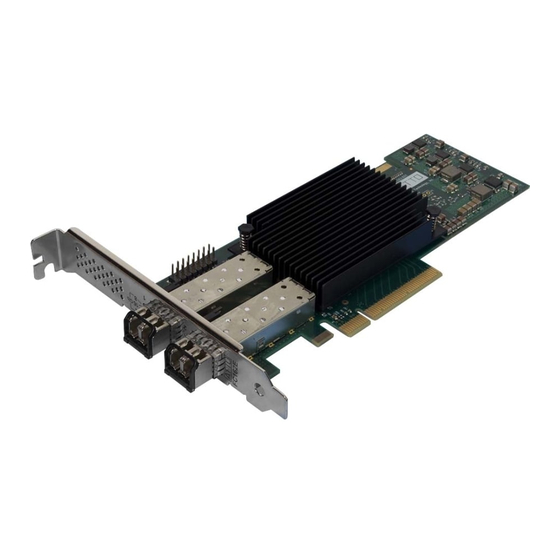On certain 64-bit platforms, the driver Makefile may be unable to detect the
correct CPU architecture. When compiling the driver, an error such as
"cc1 : error : CPU you selected does not support x86_64 instruction set".
This can be resolved by specifying the correct architecture when running the
make command. For example: $make install ARCH=x86_64
The connected fibre devices aren't detected by the operating system.
Verify the driver is loaded by examining the output of the Ismod command for
"celerityfc".
Check /proc/scsi/scsi to see a list of SCSI and Fibre Channel devices that are
known by the operating system.
Try unloading and reloading the Celerity FC driver:
- rmmod celerityfc
- modprobe celerityfc (re-applies the driver)
The Celerity host adapter is recognized, but it does not detect any of the
connected fibre devices. The command dmesg can be used to see what devices are
detected when the driver loads. It will list each device per fibre port.
Verify the Fibre devices are powered on.
Check the Fibre devices to see what type of connection mode and data rate they
are set to. Some devices use "auto" for these settings. Manually setting the
speed (1gig, 2gig, 4gig) may allow for better communication between the
devices. You may also want to force these settings on the card. This can be done
by using the ATTO Configuration Tool or entering into the ATTO CelerityFC
Utility upon boot by entering CTRL-F when prompt.
Check cable integrity. Check the cables for solid connections. Make sure the
cables snap securely into place. Inspect cable for kinks or cuts. Be careful not to
touch the ends of the cable, this can cause malfunctions in communication
Verify the SFP is not damaged and rated for the Data Rate trying to be achieved.
Also, try reseating the SFP. If this does not work, try replacing the SFP with a
new one.
If multiple Fibre Devices are being attached (switch, multiple Drive Arrays) try
connecting one device at a time, adding devices until the problem occurs. This
will help pinpoint the device or cable causing the problem.
Watch the LED indicators on the Fibre card. They should show when you have a
proper link and the connection speed you have negotiated with the device after
startup. Drive lights should also flash at startup as the Fibre port is scanned.
This may give a clue as to the root cause of the issue.
Try putting the host adapter in a different PCI slot.
Try updating the firmware on the host adapter as described in the "Installation
and Operations" manual.
If all else fails, replace the Celerity host adapter.
Page 2 of 5
(removes the driver)
Atto Technology, Inc.
April 9, 2007

